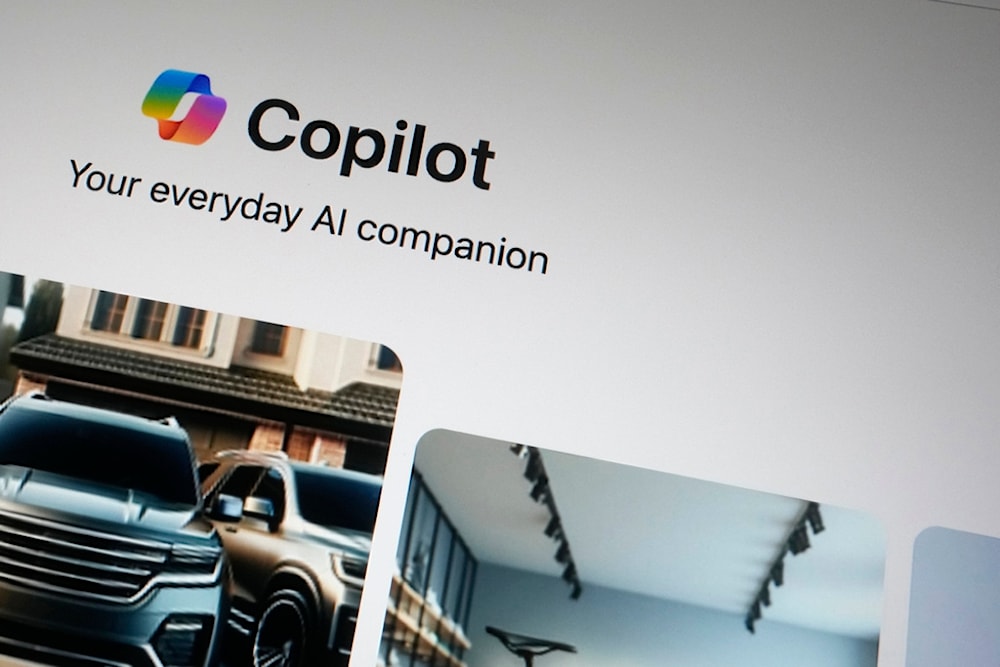In early January, the US software giant Microsoft announced that all forthcoming Windows PCs would incorporate Copilot, a software facilitating AI-generated text conversations with a virtual assistant.
-

A Copilot page showing the incorporation of AI technology is shown in London, Tuesday, Feb. 13, 2024. (AP)
Axios reported on Friday that the US House has implemented a strict ban on its staffers using Microsoft Copilot, an AI-based chatbot assistant.
This comes as US government agencies have been ramping up efforts to leverage swift advances in artificial intelligence.
In early January, the US software giant Microsoft announced that all forthcoming Windows PCs would incorporate Copilot, a software facilitating AI-generated text conversations with a virtual assistant.
“The Microsoft Copilot application has been deemed by the Office of Cybersecurity to be a risk to users due to the threat of leaking House data to non-House approved cloud services,” the report quoted the House’s Chief Administrative Officer Catherine Szpindor as saying in guidance to congressional offices.
As per the new guidance, Copilot will also be removed from and blocked on all Windows devices within the House, the report adds. Additionally, in June, the House prohibited its staffers from using the free version of ChatGPT but permitted the use of the paid version.
Read more: EU probes Apple, Google, Meta under new digital law
Cybersecurity has become a growing concern for the United States in recent times. In January this year, Microsoft claimed its corporate email system was subjected to a mass cyber attack launched by Russian-backed actors, affecting top company officials across sensitive departments.
“Microsoft has identified the threat actor as Midnight Blizzard, the Russian state-sponsored actor also known as Nobelium,” the firm said in a Friday statement.
On March 14, the US House of Representatives passed a bill with a strong majority, aiming to compel TikTok to separate from its parent company or risk being banned nationwide. However, the bill must still navigate the Senate, where it is anticipated to encounter more challenges before potentially becoming law.
The vote is the latest in an ongoing political struggle over claims that the China-based business collects sensitive user data and deliberately censors material. TikTok has denied these allegations and has affirmed that it will not leak American users’ data to Chinese authorities.
On Wednesday, the US Federal Trade Commission (FTC) announced it launched an inquiry into TikTok’s privacy practices, with a potential lawsuit looming that alleges violations of children’s privacy laws and misleading users by claiming that China doesn’t access their personal data.
The FTC was contemplating either suing or reaching a settlement with TikTok amid talks with the US Justice Department. However, if a lawsuit was filed, TikTok would face several charges mounting up to tens of billions of dollars.
This post was originally published on 3rd party site mentioned in the title of this site




